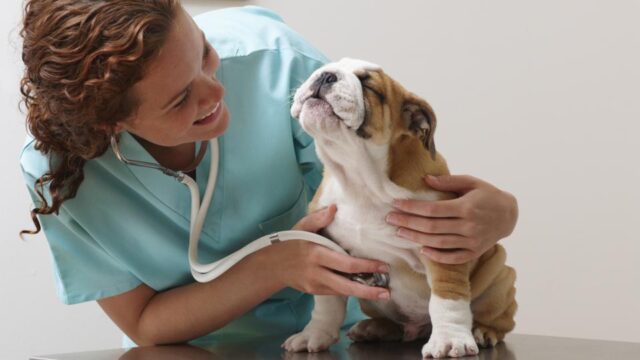
If you’re like me, your dog is more than just a pet. She’s family. So when she gets sick, you want to make sure she gets the best care possible. That’s where pet medical insurance comes in!
It can help cover expenses associated with veterinary visits and treatments so that you don’t have to worry so much about how much something costs or whether or not there are ways for you to save money on the treatment itself.
But what exactly is pet insurance? How does it work? And why should you get it for your furry family member? Let’s dive into all of those questions below!
What is Dog insurance?
Dog insurance is a way to help pay for your dog’s medical care. Just like humans, animals get sick and need treatment. Dog insurance can be used to cover treatments like surgery, medication and more. It can also be used to cover routine vet visits like vaccinations or annual checkups.
If you have a pet, consider getting pet health insurance today!
What does pet insurance cover?

Pet insurance is a great way to protect your pet from unexpected expenses. However, it’s important to understand what’s covered and what isn’t before you purchase a policy. Different policies offer different coverage options, so you’ll want to read the fine print before signing up.
There are many things that pet insurance won’t cover, such as routine wellness exams or vaccinations and other preventative care visits (though some plans do cover these). In addition, most insurance companies require that certain procedures be performed by a licensed veterinarian or veterinary clinic; if they aren’t performed at one of these facilities, then the procedure may not be covered by your plan.
To find out exactly what services are included in your plan’s coverage options:
- Read through the policy summary carefully—this will list all exclusions and limitations for each type of care under consideration
- Look over any exclusions listed for individual medical conditions (for example injuries caused by dogfights)
How does pet insurance work?
Pet insurance is a contract between you and the insurance company. You pay a monthly premium to the insurance company, and in return, they promise to cover all of your pet’s medical expenses up to a certain amount. If your pet has an accident or gets sick, the insurance company will pay for his or her treatment based on their policy guidelines and what you’ve agreed upon with them.
As long as you keep paying your premiums, there won’t be any issues with getting reimbursed for any bills that come up in relation to your pet’s care. However, if you don’t keep paying for this coverage on time every month (or at all), then it may end up costing you more money than its worth because now not only do you have no way of paying those vet bills off but also might have withheld payment from them while they were waiting on their reimbursement from the insurer.
Are there differences in pet insurance between cats and dogs?

The differences in pet insurance between cats and dogs are quite distinct. Dogs are more likely to be injured or experience an accident (which can run up the cost of a policy), while cats are more likely to contract illnesses that require expensive treatment.
Unlike the majority of the human population, dogs are more prone to aggression toward other animals and people. If you have a dog with behavioral issues that leads him to attack others, then you may want to consider purchasing a separate policy for him since this is not covered under most policies for regular pets.
What’s not covered by pet insurance?
- Pet insurance doesn’t cover pre-existing conditions, so if your dog had an illness or injury before you started the policy, you’ll have to pay for it out of pocket.
- Preventive care like vaccines, heartworm meds, and flea prevention is not covered by pet insurance.
- If your dog needs behavioral therapy due to aggression or separation anxiety, that’s not going to be paid for by pet insurance either.
- Finally, if your pup has a litter of puppies (or adopts a litter), the cost of food and supplies is not covered by most plans.
Why do some people opt out of pet medical insurance?
The answer is simple: cost. Of course, it’s never fun to think about how much money you could be spending on something, but this is a good reason to have pet insurance if you’re in the market for it. If your dog has an accident or gets sick and needs some expensive medical treatment, you might end up having to pay hundreds or thousands of dollars out of pocket for their care.
It’s also worth noting that some people worry about exclusions on their policy—things like pre-existing conditions or certain types of accidents that won’t be covered by their plan. However, those exclusions don’t apply if you decide not to get insurance at all! In other words, opting out means taking extra risks with your pet’s health and well-being while also avoiding any potential costs associated with them getting injured or ill down the line (which can happen very quickly).
Pet medical insurance can help care for your furry family member

Pet medical insurance can help you pay for unexpected vet bills, like surgeries or lab tests. It’s a good idea to have pet health insurance if you want to avoid paying out of pocket for regular trips to the vet or pricey medical procedures.
Many insurance plans cover treatment at in-network clinics, meaning that your furry family member will get the best care possible without you having to worry about costs. The average cost of an annual pet insurance premium is around $75 per year.
Conclusion
As you can see, there are many benefits to pet insurance. If you’re considering signing up for an insurance plan, take a look at our tips and tricks so that you can make the most informed decision possible.







